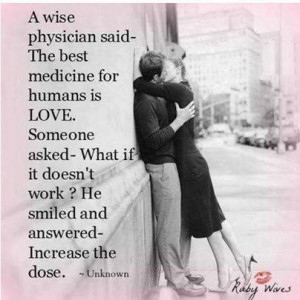We all have the potential to be healthy as we age, but it requires making positive lifestyle choices throughout life.
“I think that what it really means is still being able to play tennis when you are 70, hit golf balls when you are 75, and still enjoy life when you are 80,” said Brian K. Kennedy, Ph.D. and Chief Executive Officer of the Buck Institute for Research on Aging. “It’s about trying to maintain a disease free and healthy and functional lifestyle for as long as possible.”
Therefore, it’s all about how you maintain a healthy lifestyle as you age. “Healthy aging may mean different things at different ages,” Dr. Kennedy said. “It’s a whole lifelong issue. The lifestyle you establish in your teens and 20s impacts what you are doing in your 30s and 40s.” That carries on into old age. The earlier you make better choices, the better your chances.
Healthy Choices
Ultimately, it’s about choices that individuals make as they age and not so much what they do once they feel that they are aged. As Dr. Kennedy points out, choices about how a person manages stress in their life is relevant throughout their lifespan. “The sooner people grasp that and get a handle on those things, the better off they will be,” he said. “It doesn’t mean you can’t start at 70—you can start at any age. It may be doing simple exercises in the pool, or doing league bowling when you are 85. These are things almost anyone can do.”
And when one person makes a decision to age as healthily as possible, for as long as possible during their life, it can benefit the greater good. According the Centers for Disease Control, “By 2030, the number of U.S. adults aged 65 or older will more than double to about 71 million. The rapidly increasing number of older Americans has far-reaching implications for our nation’s public health system and will place unprecedented demands on the provision of health care and aging-related services.”
The CDC also notes that about 80% of older Americans have one chronic condition and 50% have at least two. “Research has shown that poor health does not have to be an inevitable consequence of aging. Older adults who practice healthy behaviors, take advantage of clinical preventive services, and continue to engage with family and friends are more likely to remain healthy, live independently, and incur fewer health-related costs. An essential component to keeping older adults healthy is preventing chronic diseases and reducing associated complications.”
Extending the Best Years
At the Buck Institute, an independent research facility focused solely on understanding the connection between aging and chronic disease, the mission is to increase the healthy years of life. In other words, healthy aging is not about turning back the hands of time or finding a clue to immortality, but about remaining one’s best for as many years as possible through diet, exercise and other positive lifestyle choices.
“I don’t think there is any evidence that we can stop aging,” said Dr. Kennedy. “Find an exercise program that fits your lifestyle, a diet you can sustain, manage your stress levels and the benefits come in two different ways: quality of life issues and economic issues.”
While there is evidence to support the theory that financially well off people live longer, Dr. Kennedy is referring to what he calls a potential “economic disaster” with over 40% of the population over age 65 and one in three with a chronic disease.
Each person can make choices to alter the possibility of financial and health issues.
“Adopt behavioral strategies not to completely avoid but just delay the onset so you are not getting a diagnosis with diabetes,” he said. “What we’re trying to do is understand why aging is a causal factor and figure out ways to slow down aging as a way to prevent these diseases such as cardiovascular diseases, cancer, diabetes, and more.”
Healthy aging benefits not only the individual but the greater community and no matter what your age, you can make choices to be healthier today.
The most dangerous place to be today is on the highways. But, it’s our way of life.
It matters not how healthy your lifestyle is otherwise, how you drive may determine your longivity. The stress alone of trying to be “First”, is a killer. Avoid the temptation of wanting to get there “First”. The wee bit of time potentially “Saved” could put you in a dangerous situation that ends up with you being last. Drive defensively. Live longer.

